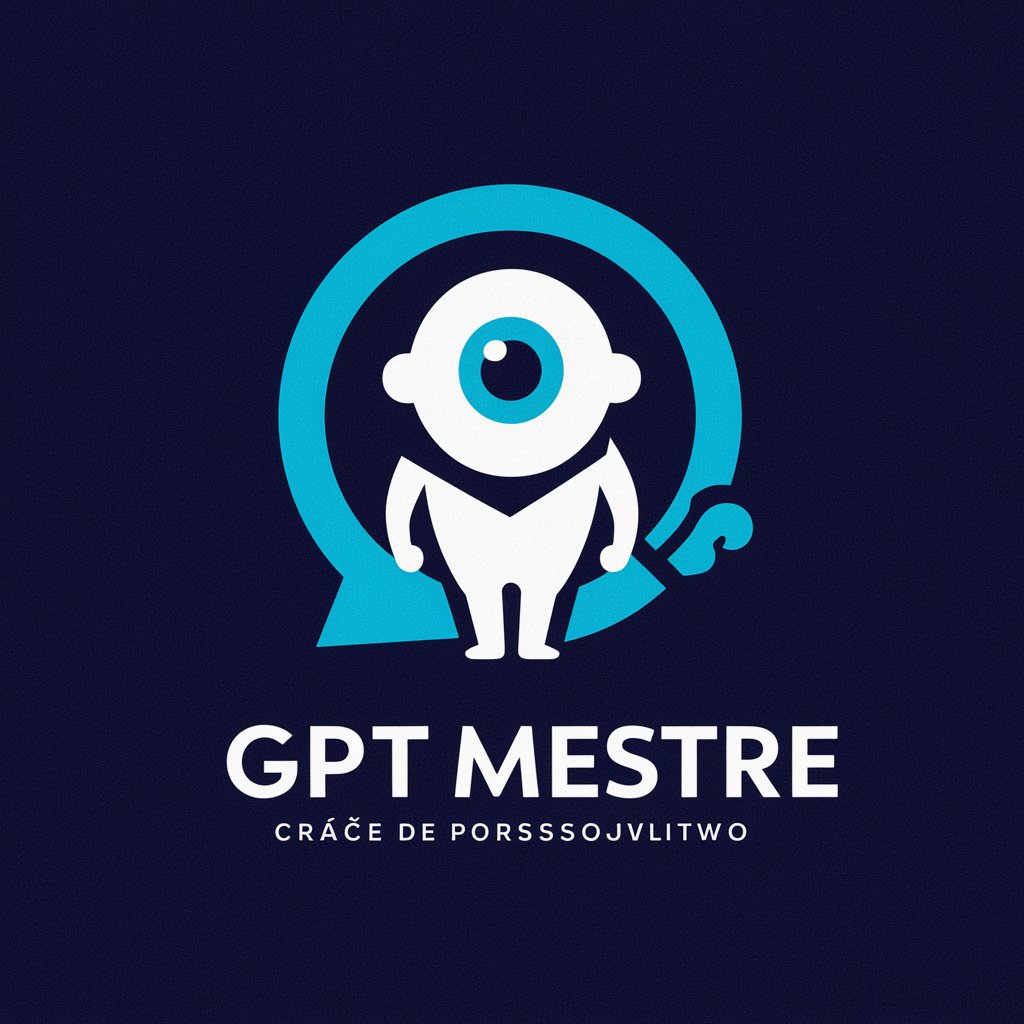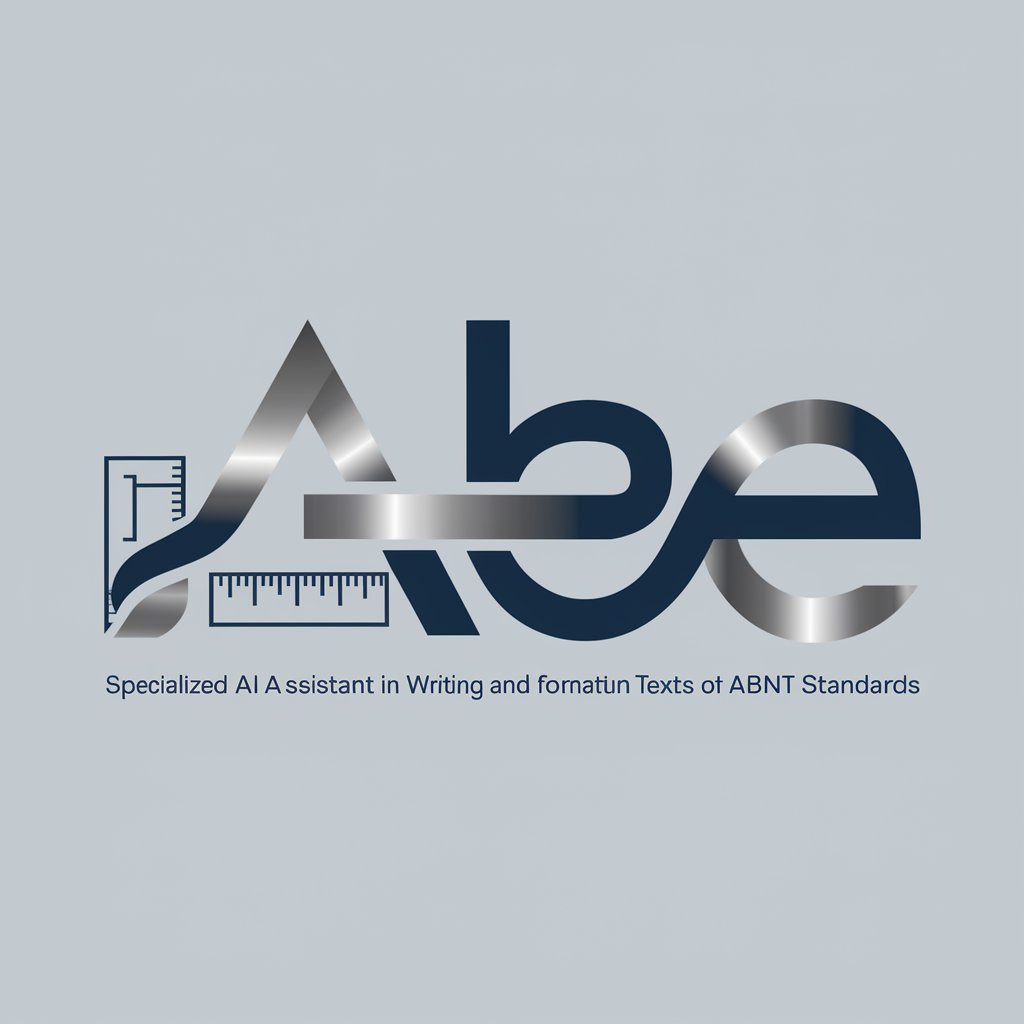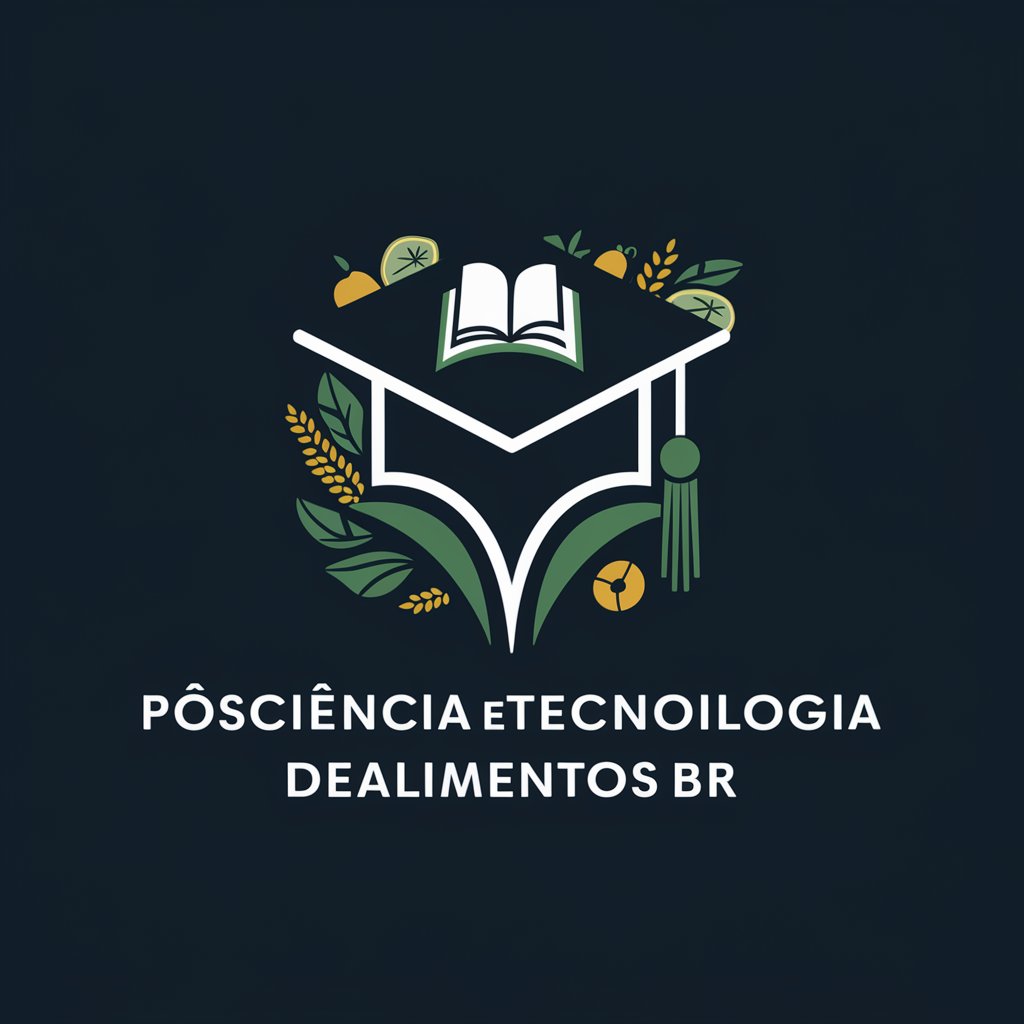PósCiênciasHumanasBR - Humanities Research Tool

Welcome to PósCiênciasHumanasBR!
Empower Your Research with AI-Driven Insights
List the theses that discuss...
Generate a graph showing the number of dissertations...
Provide an analysis of the most researched topics in...
Create a spreadsheet with data on postgraduate programs in...
Get Embed Code
Introduction to PósCiênciasHumanasBR
PósCiênciasHumanasBR is a specialized GPT designed to interact with the 'Catalog of Theses and Dissertations - Brazil' database, focusing on postgraduate research in the Humanities. This tool leverages data provided by the Coordination for the Improvement of Higher Education Personnel (CAPES) to perform semantic searches, generate graphs, listings, and spreadsheets related to academic theses and dissertations. Its purpose is to facilitate access to comprehensive data on scholarly work, aiding in the exploration of trends, topics, and detailed information on specific research areas within the Humanities. For example, it can identify patterns in research topics over time or compare the output of different institutions, making it an invaluable resource for researchers, students, and academics interested in the landscape of Humanities research in Brazil. Powered by ChatGPT-4o。

Main Functions of PósCiênciasHumanasBR
Semantic Search
Example
A user can perform a semantic search for dissertations on 'sustainable development in urban areas', and PósCiênciasHumanasBR will retrieve relevant documents by analyzing titles, keywords, abstracts, and full texts.
Scenario
This function is particularly useful for researchers looking to explore new perspectives on their topic of interest or for students seeking to narrow down their thesis subject.
Data Visualization
Example
Generating a graph displaying the number of dissertations per year on 'gender studies', offering visual insights into trends and research interest over time.
Scenario
Useful for academics and policymakers to understand how certain topics have evolved in academic discourse, aiding in the identification of gaps or emerging areas of interest.
Data Export
Example
Creating spreadsheets with detailed information on dissertations, including author, advisor, institution, and keywords, for specific research areas.
Scenario
Ideal for departments and libraries compiling comprehensive bibliographies or for researchers conducting meta-analyses on Humanities studies.
Ideal Users of PósCiênciasHumanasBR Services
Academic Researchers
Researchers in the Humanities seeking to identify trends, gaps, and opportunities for new research within their fields would find PósCiênciasHumanasBR's semantic search and data visualization capabilities particularly useful.
Postgraduate Students
Students working on their theses or dissertations can use PósCiênciasHumanasBR to find relevant literature, understand the historical context of their topic, and identify unexplored areas within their research domain.
University Departments and Libraries
These institutions can utilize PósCiênciasHumanasBR to enhance their collections, support academic research, and provide students and faculty with access to detailed analyses of trends in Humanities research.
Policy Makers and Educational Authorities
Individuals and organizations involved in shaping education policy can use PósCiênciasHumanasBR to monitor research outputs in the Humanities, informing decisions on funding, program development, and scholarly support.

How to Use PósCiênciasHumanasBR
1
Visit yeschat.ai for a trial without needing to login or subscribe to ChatGPT Plus.
2
Select PósCiênciasHumanasBR from the available GPT options to access specialized resources on Humanities postgraduate theses and dissertations in Brazil.
3
Use the search functionality to explore specific topics, authors, or universities by entering relevant keywords or phrases.
4
Utilize advanced search options for semantic searches, generating graphs, and downloading spreadsheets for academic or research purposes.
5
For optimal results, familiarize yourself with the tool's features and capabilities, such as semantic search and data export, to effectively navigate the extensive database.
Try other advanced and practical GPTs
Calabreso
Empowering Pizzerias with AI-driven Marketing

PósZoologiaBR
AI-powered Zoology Research Explorer

PréURL Scribe
Sparking curiosity with AI-driven content

Marketing Optimizer
Optimize Your Digital Presence with AI

Advogado das Famílias
Empowering Families with AI-driven Legal Insights

Inspiração Clássica
Transforming thoughts into clarity.

Eco Tech
Empowering green futures with AI and blockchain

GPT Mestre
Elevate Your AI Interactions

ABE
Enhancing Texts with AI-Powered Precision

Robô de Reels
Craft engaging reels effortlessly with AI

Coach Virtual
Empowering growth with AI-powered coaching

PósCiênciaETecnologiaDeAlimentosBR
Empowering Food Science Research with AI

Detailed Q&A about PósCiênciasHumanasBR
What is PósCiênciasHumanasBR?
PósCiênciasHumanasBR is an AI-powered tool designed to provide specialized access to a comprehensive database of Humanities postgraduate theses and dissertations from Brazil, leveraging data from the 'Catálogo de Teses e Dissertações - Brasil' provided by CAPES.
How does the semantic search feature work?
The semantic search feature allows users to conduct in-depth searches using natural language processing to find theses and dissertations related to specific topics, keywords, or phrases, ensuring relevant and precise results.
Can PósCiênciasHumanasBR generate graphs?
Yes, PósCiênciasHumanasBR can generate a variety of graphs, such as trends over time and distributions across different categories, aiding in the visualization and analysis of data within the Humanities postgraduate research landscape in Brazil.
Is it possible to download data from PósCiênciasHumanasBR?
Yes, users can export data into spreadsheets, allowing for further analysis, sharing, and presentation of research findings based on the comprehensive database of Humanities theses and dissertations.
Who can benefit from using PósCiênciasHumanasBR?
Academics, researchers, students, and professionals in the field of Humanities can benefit from using PósCiênciasHumanasBR, especially those focusing on Brazilian postgraduate research for insights, trends, and academic collaboration.
